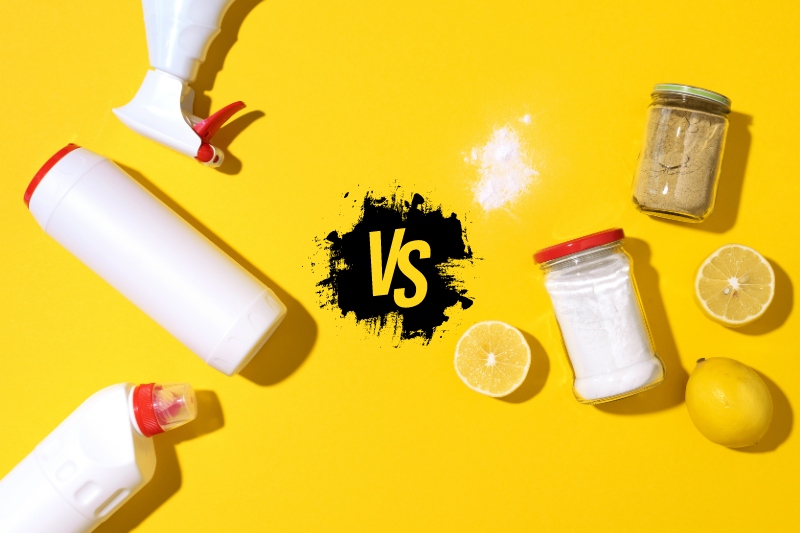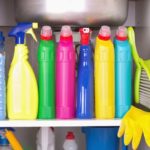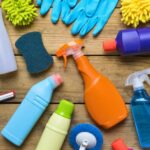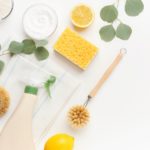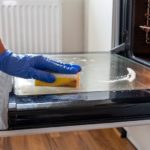Maintaining a clean home for you and your loved ones is essential for your wellbeing.
More people than ever before are conscious of the harmful build-up that can occur when surfaces aren’t regularly disinfected. But did you know that many cleaning products can also pose a risk to your health?
Most of the commercial cleaners that you find in the shops contain harsh chemicals. While these are very effective at cleaning and disinfecting your home, they can also lead to a variety of health issues.
As a result, more and more people are choosing to use natural cleaning products as a safer alternative.
So should you make the switch?
In this article, we compare chemical cleaning products vs. natural ones to help you make an informed decision about which type of cleaner is right for you. Read on for all you need to know!
What Are Chemical Cleaning Products?
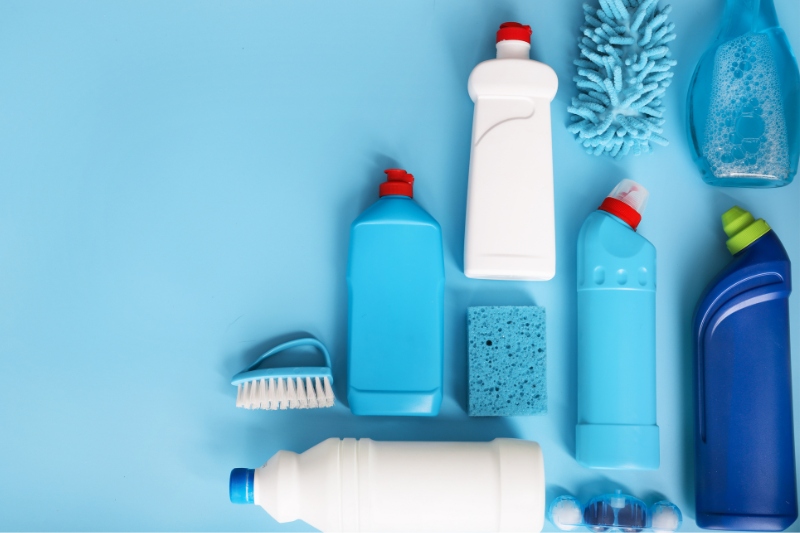
Chemical cleaning products are those which are traditionally used to clean around the home. They contain a number of harsh chemicals that can effectively disinfect surfaces, remove stains, and eliminate unwanted build-up.
Because they are so widely used, you can find a variety of these products in most stores.
Those containing the harshest chemicals come with warning labels that caution against inhaling the fumes or direct contact with the liquid.
As a result, it is always recommended that you only use these products in a well-ventilated area and wear gloves to protect your skin.
Advantages of chemical cleaning products
Chemical cleaning products are highly effective, as they contain the specific chemicals needed to do their job properly.
For instance, stain removers often contain enzymes that can break down protein-based spills, making them more effective at removing these tough stains.
This means that these products are often used for deep cleaning, especially in areas that see a high footfall or a lot of diseases (e.g., a hospital). They are widely accessible to everyone and ensure that all surfaces are adequately disinfected.
Disadvantages of chemical cleaning products
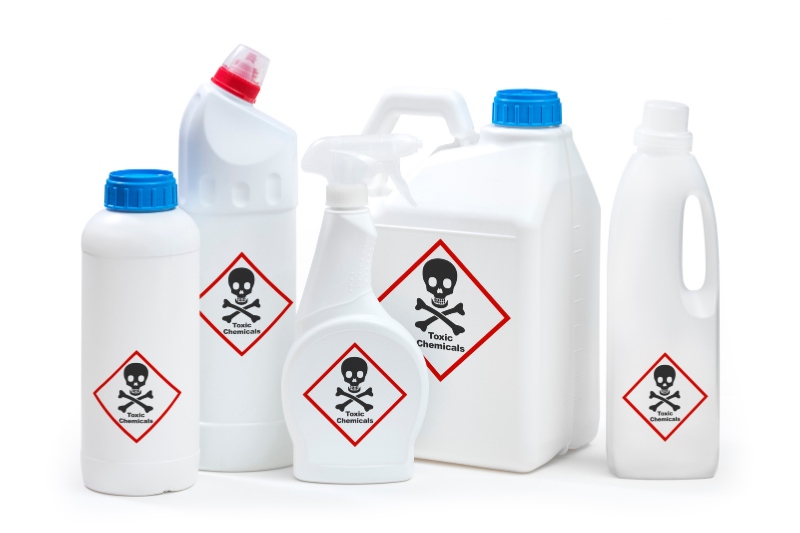
The main downside of chemical cleaners is that they can pose a serious health risk to those that come into contact with them.
This is especially true for individuals with allergies or skin sensitivities, as the harsh chemicals can cause respiratory issues and skin irritation, among other things.
You also have to be very careful to keep children and pets away from these products as they are likely to ingest them.
For example, a young child may lick their fingers after crawling across a newly cleaned floor and accidentally ingest some lingering cleaner, leading to health problems.
Some of these cleaners are also very damaging to the environment. Not only is packaging often non-recyclable, but the chemicals used can enter the water supply.
Phosphates are particularly well known for polluting streams and rivers, causing harm to aquatic wildlife.
It is worth noting that there are now some chemical cleaners on the market that only use chemicals that have been proven safe. However, it is generally best to minimise contact with these products wherever possible.
Chemical cleaning products summary
Pros
- Typically more effective than natural cleaners
- Widely accessible at all supermarkets
- Some brands use chemicals that aren’t harmful
Cons
- Often need to be used in well-ventilated areas with protective gloves
- Can be bad for those with allergies or skin sensitivities
- Potentially dangerous for children and pets
- Can be harmful to the environment
What Are Natural Cleaning Products?
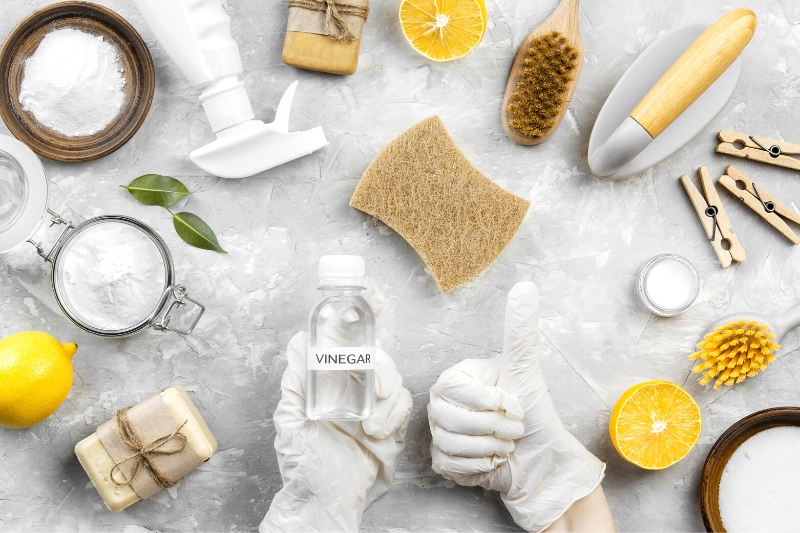
Natural cleaning products are safer and more eco-friendly alternatives to the traditional chemical cleaners discussed above.
As more people are becoming aware of the harmful effects that chemicals can have on our health and the environment, these types of cleaners are becoming increasingly popular. This is because they are made using natural, non-toxic ingredients that have been shown to have no adverse effects on your health or the environment.
Advantages of natural cleaning products
As natural cleaning products don’t contain toxic chemicals, they are an excellent choice for anyone struggling with allergies or skin sensitivities.
In general, you can safely use them without worrying about inhaling toxic fumes or coming into direct contact with an irritant.
However, bear in mind that ‘natural’ products can still be powerful and could be harmful if used incorrectly.
Natural cleaning products are less likely to pose health risks to your children or pets, giving you peace of mind.
As their popularity increases, natural cleaning products are becoming more readily available in shops. These are generally more eco-friendly than chemical products and come in sustainable packaging. However, their less widely available than their chemical counterparts.
If you have time, you can try making your own cleaner using household ingredients such as white vinegar, bicarbonate of soda, and lemon juice. These can be found in every supermarket, though you likely already have these ingredients in your cupboards. You also have the added benefit of knowing precisely what is in your cleaner.
Tip: If you want to give them a go, why not try our homemade laundry detergent, spray cleaner, or carpet cleaner recipes?
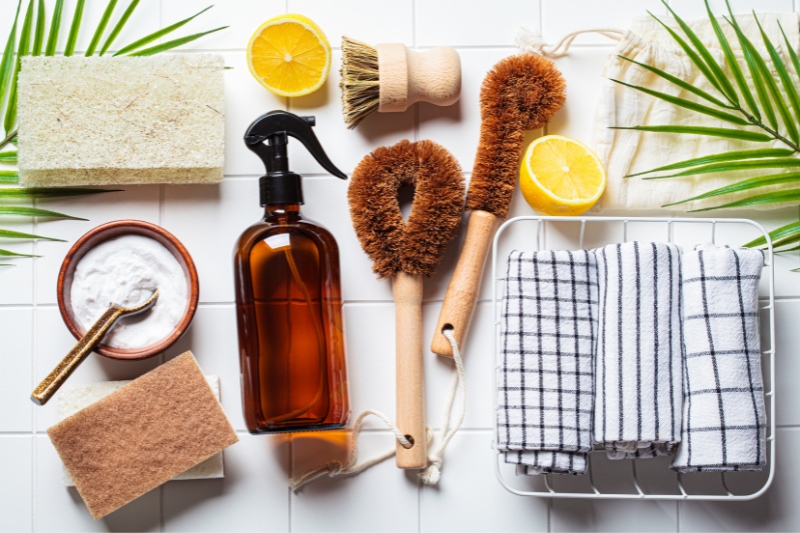
Disadvantages of natural cleaning products
The main drawback of using natural cleaners is that they can be less effective than chemical ones. However, they can still get the job done if you leave them to work for a longer time and use a bit more elbow grease.
We suggest you create a cleaning schedule to ensure the build-up doesn’t become too much for these cleaners’ capabilities.
Moreover, natural cleaners can sometimes be hard to find, and there will be less variety than you would find with traditional chemical cleaners.
They are also typically more expensive, but not to the extent that they aren’t a viable option for those on a budget.
Plus, you can also make your own homemade natural cleaner if cost is a concern; buying simple ingredients in bulk will nearly always come out cheaper than a commercial product.
Natural cleaning products summary
Pros
- More eco-friendly (both the product itself and the packaging)
- Can be made at home using everyday essentials
- Ideal for those with allergies or skin sensitivities
- Generally safe for use around children and pets
Cons
- Often not as effective as chemical cleaners
- Not as much variety in stores
- Typically more expensive unless you make your own
Are Natural Cleaners Better than Chemical Cleaners?
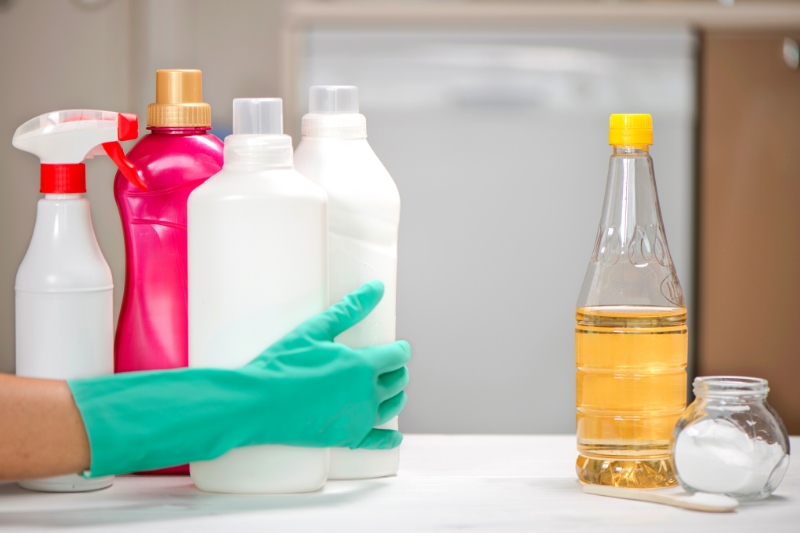
We’ve looked at the pros and cons of chemical vs. natural cleaning products, but which is best? In fact, natural and chemical cleaners both have their place in the world, as they each come with different benefits and drawbacks:
- Chemical cleaners are generally best for high-footfall areas as they are more effective at cleaning. They also work out cheaper to buy, which is crucial as high-footfall areas typically need cleaning more frequently. You should also use chemical cleaners if someone has been sick to remove all the germs and avoid reinfection or contamination.
- Natural cleaners are recommended for all other cases as they’re typically strong enough to cleanse and disinfect your home without posing any risks to you and your loved ones’ health or the environment. Depending on the level of build-up in your home, you may need a more regular cleaning schedule to ensure the grime doesn’t reach unsanitary levels.
Ultimately, it’s down to you to decide which cleaner is best. However, if you stick with a chemical cleaner, we highly recommend you check the label and choose the safest possible product.
Although chemical cleaners will rarely be as safe as a natural ones, some contain fewer harsh chemicals. Those containing the most harmful ones will come with a warning, even if the ingredients aren’t clearly listed.

Hannah has a passion for cleaning. She worked her way around Australia by cleaning hostels in exchange for free accommodation and used her cleaning skills to bag a job as a chalet host for a luxury ski company in France.
